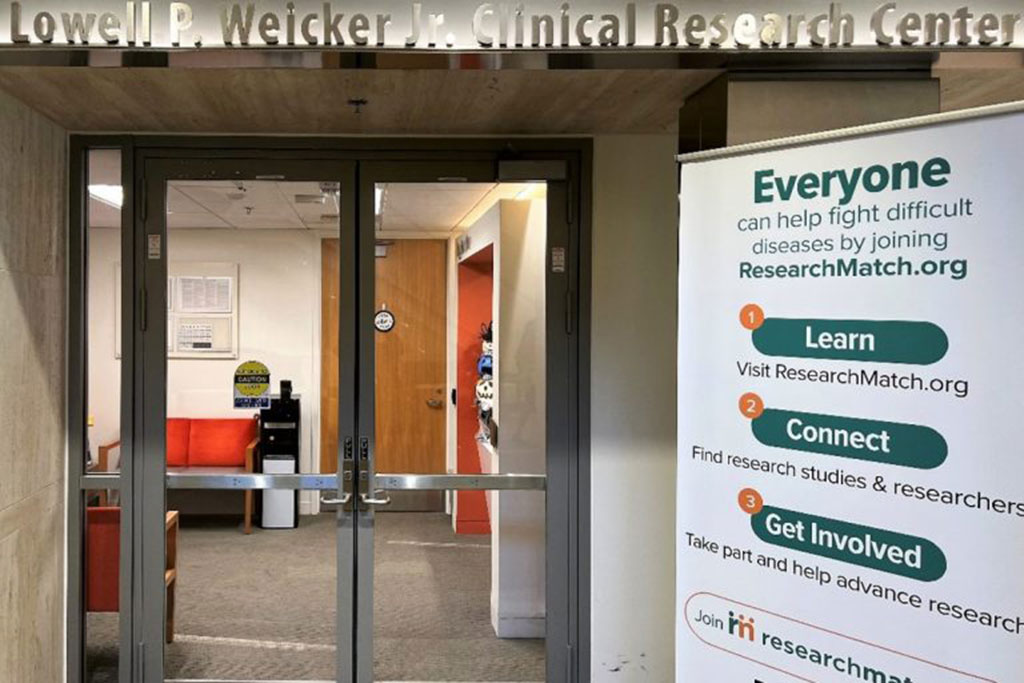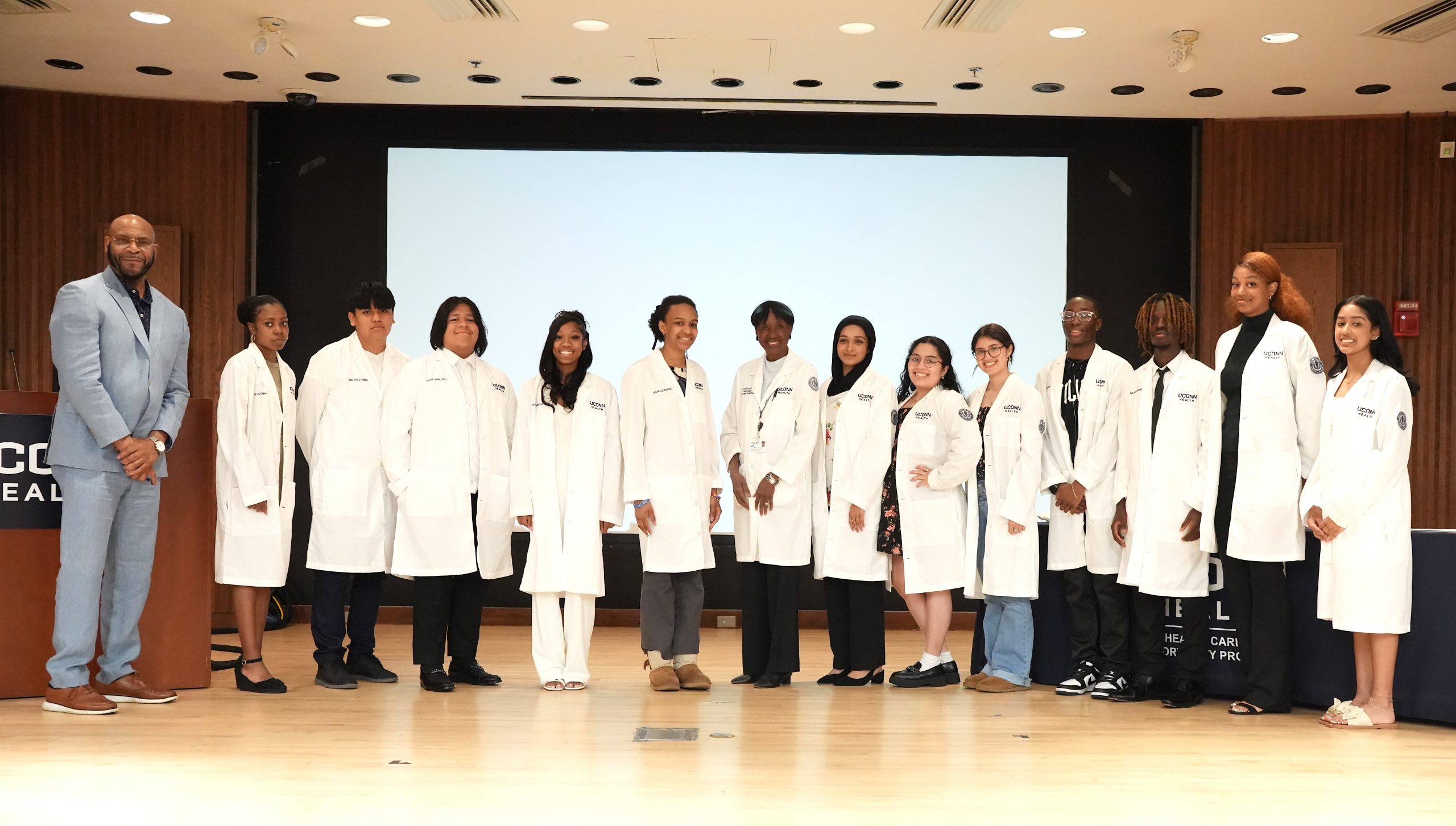Dentistry may not be the first thing people think of when it comes to personalized medicine, but it ties into what’s known as “systemic health.” Dr. R. Lamont MacNeil, dean of the UConn School of Dental Medicine, explains that, and shares his perspective on the future of health care, in which a team of providers, rather than a single physician, is at the center of patient care.
How does dental medicine fit in to UConn Health’s long-term vision of personalized medicine?
Dentistry, by its nature, is very personal in its form of delivery. Patients tend to get a bit more personal time with their dentist than their physician, in part because so much of the direct care provided in a dental practice is still by the dentist rather than auxiliary staff. Unquestionably, this creates a strong, personal connection between the dentist and the patient, and that is perhaps the purest definition of personalized care.
But what I believe you are really asking me about is how might dentists possibly use genomics information – the personalized information encoded in each of our unique DNA libraries – to improve patient care. You may be asking, “How could this possibly relate to the type of care, be it restorations or periodontal care, I now receive at my dentist’s office?” Although it may not be evident at this time, I believe we are approaching a time where this sort of information will not only have an impact on those procedures we currently perform in dentistry but could change the profile of what we do in the future as health care professionals.
There are two distinct aspects to consider in this. First, how might genomics help us prevent and better treat the dental diseases that are currently the focus of dental care, and then secondly, could this same information be somehow useful in promoting overall health. Both, I believe, will be possible, as more rapid and cost-effective methods evolve for genomic screening.
Tell me a bit more about these possibilities.
In terms of our current therapies, the two most prevalent diseases that dentists treat are dental caries (or dental decay) and periodontal (or gum) disease. Both diseases have a microbial component and a host defense component. We then actually have two genomes involved: that of the causative bacteria and that of the patient. Genomic screening of dental plaque will undoubtedly give us better information on the composition of oral biofilms and specific pathogenies therein that we might able to target with conventional therapies or perhaps even genomic-based therapies. That would be a huge breakthrough. At the same time, one cell from the gingiva [gums] or from the cheek mucosa, for example, can tell us everything about the genomic make-up of the patient and, within that, the patient’s ability to mount a protective immune response to these microbes. In the case of periodontitis for example, we know that some patients have an aberrant immune response that is actually a major part of the disease process. Understanding if a patient is a low-, normal-, or high-inflammatory responder by use of a genetic test could open up another option for care, where we not only target the causative agent but might also modulate the response of the patient to that agent. We are actually doing this now to some extent without genomic screening, but genomic information like this would make such an approach much more directed, personalized, and, I believe, more effective.
You mentioned that dentists might also be involved in screening for disease risk other than oral disease. What did you mean by this?
The health professions are gradually moving to an inter-professional team approach where different types of providers (for example, physicians, dentists, nurses) will more effectively work together toward the improved overall health of the patient. Part of this is a surveillance role where, for example, dentists might not just screen for oral disease risk but, where appropriate, extend that screening to include systemic diseases that affect many among the population. Some of these diseases might significantly link to oral disease, but others may not.
Examples of these systemic diseases are diabetes, cardiovascular disease, inflammatory disease of the joints such as rheumatoid arthritis, and kidney disease. As I mentioned earlier, if a dentist takes a tissue sample from the mouth, just one cell in that sample holds all the genetic information for that patient, not just the information pertaining to oral disease. It then becomes a matter of just how broad the genomic screening should be and the competency of the individual provider in understanding that genomic data. I am not talking about dentists or nurses replacing physicians here in terms of diagnosing and treating systemic disease, but I think non-medical professionals can play a larger role in the new area of genomics in general screening for risk of disease, so long as these providers have the knowledge base necessary to understand genomic information. That is more easily said than accomplished, since we are talking about a very complex field here. In that regard, I can envision a time when there might be a clearinghouse for such information that might help various types of providers in interpreting genomic information pertinent to their particular field of health care. Beyond the complexity of the area, the basic concept here is that the more health professionals we have engaged in health surveillance, the better chance we’ll have at detecting higher risk for disease and either preventing disease incidence or intercepting disease processes much earlier, when therapy might prove more effective.
Is the UConn School of Dental Medicine preparing today’s dentist for this possible new role in personalized medicine?
The most important aspect in all of this is the basic and applied scientific training that health providers receive in the arena of genomics. A sound educational base is the only way to ensure that a provider understands the potential – and also the limits – of something new like genomic screening. In that regard, dental students at UConn are probably receiving the best training in the country. There only a handful of academic health centers in the United States where dental students receive the same basic science curriculum experience as medical students, and at UConn this includes equivalent training in genetics and genomics. Even more important is the fact that this curriculum not only explains the biological concepts but also addresses the significant legal and ethical issues relative to the use of genomic information in health care. The challenge nationally is to deliver this level of education across all schools of dental medicine. We are fortunate to be a leader in this regard, but a lot more has to be done to move this from the classroom to a functional level in practice. We are not at that stage yet, but the groundwork is there when that time arrives.
How do you see this evolving?
The most rapid change I currently see is the emergence of greater inter-professional partnerships in health care. Across the country, more and more effort is being devoted to inter-professional education and the creation of inter-professional care teams. Collectively, I believe all of us in the health professions – physicians, dentists, nurses, etc. – understand that we can be of greater benefit to our patients by maximizing our educational training, practicing at the upper limits of our competency range and within our scopes of practice, and communicating better with each other in the care of those we treat.
Genomics adds just one more dimension to this possibility. With time, I believe we will see dentists using genomic information not just to improve the oral health of their patients but also to assist them, in unison with our colleagues in the other health professions, in their quest for overall health.
Follow UConn Health on Facebook, Twitter, YouTube, and SoundCloud.



